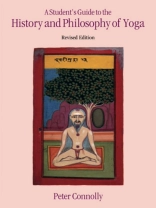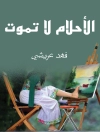The word ’yoga’ conjures up in the minds of many Westerners images of people performing exercises and adopting unusual, contortive postures. Such exercises and postures do have a place within the practice of yoga, but it is much more than that. Indeed, the early literature on yoga describes and defines it as a form of mental rather than physical discipline. Yoga is also associated with the Indian subcontinent and the religions of Hinduism and Buddhism. This revised edition of a classic textbook concentrates on the evolution of yoga in the context of Indian culture, although the final chapters also explore its links with non-Indian mystical traditions and its developments outside India during the modern period.
The book is aimed at both university students taking courses in comparative religion and philosophy and practitioners of yoga who seek to go beyond the activity and explore its spiritual dimensions. It presents yoga in the context of its historical evolution in India and explains the nature of its associations with various metaphysical doctrines. It also draws on a number of conceptual schemes designed to facilitate comparative study. Some of these are employed throughout the book to link the material from each chapter within a common framework. This edition incorporates revisions and expansions to most chapters and contains a new chapter on the future of modern yoga in the West
Innehållsförteckning
Table of Contents
Preliminaries
Abbreviations [+]vii
Sanskrit Letters and their Pronunciation [+]ix
Preface [+]x
Introduction
Introduction [+]1-15
Chapter 1
Background to Yoga Philosophy [+]16-21
Chapter 2
Yoga in the Texts of the Veda [+]22-62
Chapter 3
The Sramanic Traditions: Jainism and Buddhism [+]63-97
Chapter 4
The Epics and the Bhagavad Gita [+]98-124
Chapter 5
The Orthodox Philosophical Systems [+]125-179
Chapter 6
Sectarian Developments: Saivism, Saktism and Tantra [+]180-212
Chapter 7
Modern Yoga [+]213-228
Chapter 8
Some Reflections on the Psychology of Yoga [+]229-245
Chapter 9
Whither Modern Yoga in the West? [+]246-287
End Matter
Appendix: Shifting Paradigms in Modern Yoga [+]288-292
Notes [+]293-313
Bibliography [+]314-321
Index [+]322-327
Om författaren
Peter Connolly (Ph D) was, for many years, senior lecturer in Religious Studies at the University of Chichester, England, where he taught courses on Ethics, Indian Religion and Psychology of Religion. He has also worked as an associate lecturer in both Psychology and Religious Studies with the Open University and has delivered many courses on the history and philosophy of yoga for a number of yoga training institutions. He is fascinated by all forms of altered states of consciousness, has trained in Neuro-Linguistic Programming (NLP) and hypnosis, and experimented with psychedelic chemicals and a variety of meditation techniques, including Divine Light, Lam Rim, Sant Mat, Transcendental Meditation and Buddhist Vipassana, all of which offer interesting perspectives on the psychology of religious experience. He is currently a consultant with Turning Point Consulting is a company that specialises in human development, facilitating change through Counselling, Coaching, NLP Training, Supervision and Yoga Philosophy.












